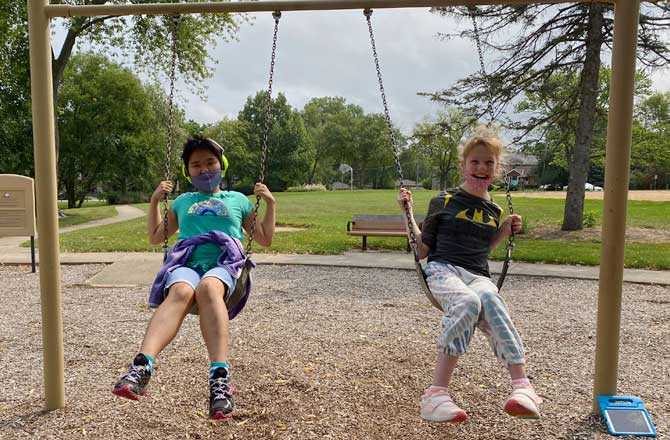May is Mental Health Awareness Month. Among all of the articles, podcasts and social media graphics floating around this week, there is a topic that appears to be missing. According to the National Association for the Dually Diagnosed (NADD), 35% of people with intellectual disabilities also experience mental health disorders.
This is not news to us at Keshet. Providing for people’s emotional wellness has always been part of the work we do to support participants in our programs to live their best lives. However, for decades, someone’s mental health diagnosis was secondary in to the primary diagnosis of Down syndrome, autism, cerebral palsy, Fragile X, etc. in shaping a participant’s IEP or personal plan.
As the field of special education has become more attuned to dual diagnosis, we have seen a significant shift in the population at Keshet. Today, there is an increasing number of children, teens and adults in Keshet’s programs where their mental health diagnosis is more dominant, or equally as impactful, on their lives, as their intellectual, developmental or physical disability.
We approached this change the “Keshet way” by not dwelling on whether we can support people with dual diagnoses, but, instead, how we can best do this. We looked to the experts on our staff and others in the community for guidance. These social workers, psychologists and behavior therapists have retrained our staff and provided us with new tools, particularly in our schools and at camps where the population with social, emotional and behavior disorders is rapidly trending upward.
Yet, it’s important to keep in mind, that social-emotional health is important for everyone. Too often, it goes unnoticed that people with intellectual and developmental disabilities go through the same life struggles as those without disabilities. They suffer teen angst, get in arguments with friends, rebel against parents, struggle with roommates and question career decisions. These bumps in the road can create major upheaval in someone’s well-being, and they look to Keshet staff for guidance.
Issues of mental health and disability existed long before COVID, but the social isolation and uncertainty of the pandemic had a disproportionate impact on the lives of people with disabilities. From the early days of the pandemic, studies showed that people with disabilities were experiencing greater physical and emotional effects from isolation than non-disabled peers. We saw this increase in depression and anxiety among Keshet participants. It’s no surprise to us that a study released in February showed that 18% of those with disabilities believe that life will never return to normal compared to 11% of non-disabled adults who view the future in the same way.
Prioritizing mental health has been an organizational goal for the past year. In addition to the four exceptional social workers who already worked at Keshet’s schools, we added four new staff members with mental health expertise to our full-time team this year, including a social worker who is dedicated to supporting adults. We have expanded our contracts with behavior specialists, music therapists and art therapists to reach people in different ways. We’re also proud to have furthered our relationship with JCFS, where there are clinicians who specialize in therapy for people with intellectual disabilities.
Similar to our participants, Keshet is always growing and evolving. This includes the population we are serving and the types of challenges they face. We believe that supporting emotional wellness and acknowledging mental illness is one of many ways to create a community of belonging within and outside of Keshet. We are committed to doing this throughout May and beyond. The mental health of those in our programs, and the people who support them, is critical to everything we do.

